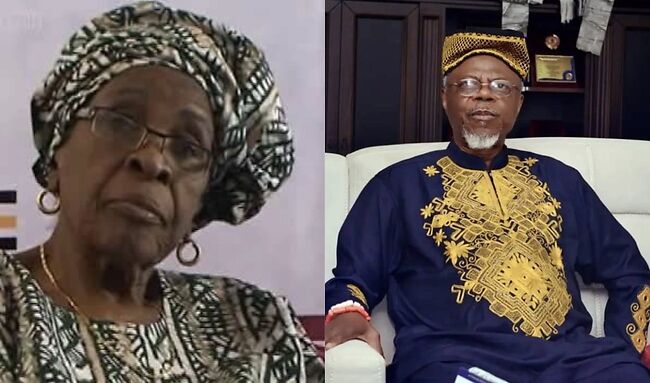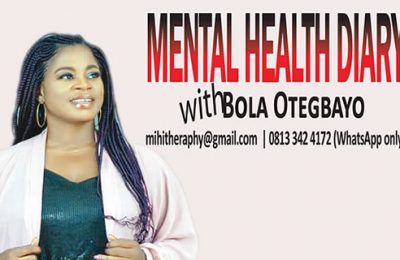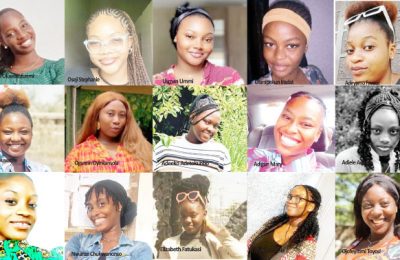In this interview by KEHINDE OYETIMI, erudite professor of African history with base at the University of Texas at Austin, United States of America, Professor Toyin Falola, speaks on the scholarship and humanity of Professor Bolanle Awe who is to be celebrated at the Professor Bolanle Awe at 90 Conference scheduled to begin on Monday, February 13 through 14, 2023, at the University of Ibadan.
As a foremost Professor of African History and representative of the University of Texas at Austin, you are the senior convener of the Professor Bolanle Awe at 90 Conference. What inspired this celebration?
You have to understand Professor Awe’s scholarship against the background of African Studies after the Second World War. She was one of the pioneers of intellectual battles and epistemological wars. She survived in the trenches! Right from the time when Eurocentric ideological traditions have been centralised as the global source of intellectual inspiration, every other knowledge economy has suffered substantial damage done to them in an attempt to universalise the same bias that initiated the problem. The enormity of this catastrophe on African epistemological foundations, identity and existentialism are not appropriately captured or felt until it was the time when African intellectuals and intelligentsia came to the ground where knowledge production and then distribution were being managed, and they were left with nothing but pebbles to deal with, being exposed and rendered vulnerable as a result. Whereas the success of this outrageous one-size-fits-all and Eurocentric approach would always place them at the base of international relevance as they have refused to produce intellectual content that bears the mark of their mental quality,nor were they efficient in making use of contents created outside the knowledge terrain of the universalists, regardless of how original, the validity of their civilisational ideas, the quality of their intellection, among others, they would remain secondfiddle to the West and their woes would be deepened by this reality. One would notice, therefore, that the odds are apparently against the Global South, and it would take a diligent and committed focus to rescue the situation.

One of the most consistent voices against this institutional rot and decadence was, and still is, Bolanle Awe, whose confidence in charting the course of Afrocentric epistemological inheritance to the knowledge community in the world is illustrated by a series of intellectual productions, engagements, theories and the unending research she undertook which would eventually serve as inspiration to a whole world of Africans in the past and the contemporary time. We often reduce the honourof outliers when we have normalised the efforts they made as basic or conventional standards, not knowing that what it takes to come across as a voice of the people in an unapologetically repressive environment cannot be overemphasised. Confidence, determination, and the zeal to make an impact even at personal cost and consequences are the attributes we undermine when we gloss over what pioneers have done, forgetting along the line that they paid priceless value to ensure that people have access to the level of freedom that they have today. Awe is one such light to African epistemological perspectives offered in the global knowledge economy in contemporary times. Apart from breaking the unwholesome barrier that Africans were a people without civilisation and a people without worthwhile history to reckon with, this intellectual was able to dissect Eurocentric bias by letting us into African history to understand the various items of knowledge and layers of wisdom that is dished out in the African knowledge pool.
At the time when she was born, Africans still suffered the stigma that they were intellectually inferior to the extent that they were considered subhuman and could not understand the gravity of intellectualism, much less talk of contributing to the debate. More realistically, it was a time when the European-induced African patriarchy was taking the honour of the period,thereby suppressing the voices of female scholars in a desperate attempt to keep the oppressive culture. This again indicates that the position of Awe against this system required confidence and determination. In essence, her efforts to enhance Afrocentric ideas in the knowledge domain were targeted at fighting different battles, all of which were critically important and situationally necessary to redeem African images. On the intellectual front, she corrected the erroneous notions that Africans did not have recordable history, projected by a chain of European generations who even manipulated scientific evidence to substantiate their racist claim. On the other side, she was also creating a passageway for the females to come into the system so that they would correct the wrong values carefully instituted by the Europeans and their African allies after independence. One cannot look at what she has done and have the moral courage to say that she does not deserve whatever honour we have rendered today and every other day.
The theme of the conference is Oral Traditions and Written Histories. Why such a choice?

It is to remind ourselves of our tradition and inherited legacy. It is to say the past is still alive. It is an affirmative statement that we still have a lot of work to do. Anyone familiar with African struggles to reclaim their identity in global intellectual engagements will also be accustomed to the fact that that achievement did not come on a platter of gold. Africans had their history rewritten and reshaped over the deliberate orchestration of destructive narratives to keep them at a marginal position in the global intellectual terrain. At first, Europeans argued that there was nothing honourable in the African past,and for people who are dark in colour, their past also was dark and did not have meaningful values that could be extracted for their transformative improvements and development. These biases, we must say, are a deliberate tool of mental reorientation and mind re-engineering, which its perpetrators believed would facilitate the aggressive dislocation of African history to enhance their agenda and actualise their capitalist aspirations. Continued scholarship has revealed that the claim that Europeans were unaware of past African accomplishments in every aspect of human history is mendacious, for the history of Egypt and other great African civilisations pierced through the world and were well-known across boundaries. To, therefore,suddenly say that they are not aware of the greatness of Africa is to distort history for the purpose of their parochial intentions. Although the orthographic cult in Egypt was not a general experience among African nation-states, it nonetheless did not indicate that people did not have recorded means of communication.

Meanwhile, many African traditions are kept and archived in oral medium, and since they are used to that system of historic preservation, the documentation of their existence, history, and accomplishments in that format continued for generations. To the extent that there were designated individuals for the roles, Africans kept their identity, values, and history through the oral medium. However, Europeans were latecomersto the theatre of civilisation building, and until they had the culture of writing, keeping their history was relatively difficult. For this reason, they were unfamiliar with the idea of keeping one’s historical past in an oral medium and never understood its technology. In essence, they denigrated that system when they came across it. Whereas their usual “my way or highway” attitude affected them substantially in this respect, their intransigence to understand that there is a wide possibility for performing an act without necessarily discrediting the process. Instead of the Europeans accepting this reality, they denigrated, chastised, abused and undermined the African methods of historical documentation. This became a general problem for the earlier African intellectuals who worried about establishing any meaningful connection between their generation and past African generations so they could excavate their deeds for contemporary relevance.
Understanding the science of their existence and historical values, they immediately accepted oral medium as the source of their historical record and recreation. Except for the flummoxed West, it was a relatively easier experience for the Black who already were used to it from time immemorial. They understand that the Eurocentric invalidation of that system was enhanced either by the absence of that behaviour in their cultural environment or a deliberate decision to undermine the African systems. Through the oral medium, African history in every segment is documented, and regardless of the research taken in different contexts and various situations, only minor variations would occur after exercise, and this enabled the pioneer historians to accept the methodology as a means of reproducing the African history. It worked and provided results in the long run. Today, there is a protruding number of academic engagements that are written in whatever linguistic codes are available to the writer. This, therefore, signals that African history has come a long way and deserves all respect, accolades and support that she has garnered recently. Professor Bolanle Awe’s significant contribution makes it very great to undertake their intellectual engagement this time to honour her and recognise how far we have come as a people in the global intellectual community.
As one whose works have paid particular attention to enlarging the frontiers of better appreciating African history, what is the relevance of this conference to African oral traditions and written histories?
Continuity! Emerging scholars must be on the legacy of the past.
Change! Emerging scholars must rethink the disciplines.
Change and Continuity! Emerging scholars must mesh multiple ideas, grind them to create new intellectual products.
Africans cannot shy away from their reality because they facepressure from those with whom they do not share the same historical and epistemic realities. If there is anything that the last 100 years have taught us as academics, it is that the world is not genuine in recognising alternative perspectives and that all campaigns for pluriversalism and multiplicities are a mere facade. Consider, for example, the story of the Remo people in today’s Ogun State, you would hear it in its sequential arrangement by the griot in Ekiti, and you would find no difference from what you hear by that Ekiti griot when an Oyo griot renders the same history. While the one and mechanisms of rendition may differ, what is constant is that the content would share compelling similarities among them. We should not,therefore, see this feat as ordinary and inconsequential. We need to efface the superficial gaze with which we have been programmed to see things. You would notice that the technology of preservation employed among the Yorùba has been systemically instituted across their social networks so that the vast majority of those archiving their history would have almost the same content without necessarily knowing one another before the performance of their activities. Do we now disarticulate this practice and say that the methodology it produces in getting information about our past is invalid? Again, should we not ask ourselves to what extent is written history from this oral one when deeply evaluated?
From all that is known and available to us, we have heard many scholars refer to African elders as living libraries simply because they are the repository of history and esoteric knowledge. Like us, Africans who were usually not contaminated with Eurocentric modernity exposed themselves to different social activities in which they usually function actively and had the opportunity to register their influence. When they become elders, they are not condemned to the older people’shouses where they will while away their time till they transit to the great beyond. Instead, they enter into another age-group and age-grades where they reinvent themselves as members who would help shape the direction of their progress. This means that they would continue to offer substantial support and information that would help in the sustenance of their legacy and also the transformation of the world. They do this through their oral engagements to engineer society in ways they all conventionally anticipated. In essence, it would be culturally suicidal to euthanise that particular system under the impression that we are being integrated into the Western epistemic identity in the contemporary time. That would do a grave danger to our collective civilisation. What would happen is that we would have an African space that limits the intellectualism of Euro-North American modernity.
Those of us in the Western education pathway have embraced the Western written mode of history, which indicatesthat we respond to the prevailing reality. Therefore, crusades for the eradication or effacement of oral traditions would create a pool of uneducated people in their indigenous values and symbols. Education can be parallel, and one would not disturb the others. Those who are keeping the oral traditions should not be bludgeoned to abandon them under the guise that they need to be ‘civilised‘ except by doing that, we are by ourselves imposing the Western education system as one that should be universalised. This conference would help sustain the African modes of educational services so that many people would be educated. Essentially, the standard for measuring educated ones would not get exclusively Western. The ones who have the knowledge of things in their oral archive and can reproduce them to give us results should also deserve equal recognition fortheir efforts to advance our collective greatness. It cannot be overemphasised that when this is sustained, the people who have hitherto been marginalised would see themselves as members ofbuilding a worthwhile civilisation and that itself would be a good thing for the academic engagements in the current time and also it would boost African epistemic progression.
How does African history fit into a fast-changing world altered by digital preferences?
Africa is a geographical landscape, and Africans are the human resources deposited into it. Meanwhile, the digital community and preferences are technology, and technology is a tool. This suggests that African essentialism is not only powered by the existence of technology. It transcends it. In essence, the world moves in any direction; it can keep up with any technological speed, and it can switch to whatever digital angle; what would remain constant is that Africa and Africans would continue to survive within the reality emphasised by any technological inventions. The primacy of development is that humans can retain their intellectual properties and coordinate their activities as long as they exist in their world. This means that it is a fact that humans exist and that their history also would survive with them. African history, to this extent, has nothing to fear, for it can survive situations as long as humans, who are the preservatory instruments, survive. In fact, instead of them to express fear, Africans should accept that their history itself is a force that had the power to survive difficult times, and the fact that it survived every layer of inordinate machinations of the past means that it would survive the future no matter what happens in it. As the people continue to update themselves and align their intellectual reality with what exists in their time, the acclimatisation of African history to whatever the reality iscannot be difficult.
What is important is that they would situate themselves within the context of social and technological currency so that they would interpret their existence through that reality. It is a relief to understand that as much as the intellectual engagements are extended deeply, Africans always find connections between the happenings of the influential world and what they have in their historical archives. I do not need to restate the fecundity of Afrocentric epistemological foundations and inheritance when you understand that a number of scientific research linking computers and Ifa has flooded the intellectual market. Whereas Ifa itself is the compendium of Yorùbá people’s epistemic, scientific, metaphysical, and even ideological philosophy, and more, whose existence far predated the Euro-North American industrial revolution that became the brainchild of computer and digital technology. If this is the case, would it, therefore, surprise you that scholars just need to dig more; they would untimely uncover the fundamental connection between the African existence and digital space as we find today? If anything has been learned within my space of interacting with the reality of the world of Africans, it is the fact that they cannot fit into the tiny bit and space of Eurocentric consensus as they (Africans) would always defy such.
I was watching a Facebook documentary powered by a Yorùbá investigative journalist recently, where the author argued that the modern representation of AI intelligence, robots, shared something closely similar to what existed among the Yorùbá people from time immemorial. The documentary identified Sigidi as the equivalent of modern AI intelligence or robotic figure. Immediately I came across this, my mind travelled in time to when I was a little younger. I remember that the responsibility designated for the Sigidi is closely associated with what is associated with robots in modern times. Although it is usually portrayed in the explicit terms found in modern history, it cannot be overemphasised that there is a possibility of scientific discoveries in that regard if research is sponsored. We should be educated that it does not necessarily have to follow the Western technological trajectory before there is validation of what it did and how it is used. What is important is that it servesthe purpose for which it is meant and also is ready to be accommodative of improved ideas so that it would be considered from the angle of the people. If you now talk about African history and the digital community, I don’t see why they cannot coexist together, as it appears inevitable that they are not mutually exclusive. So, African history would survive every situation irrespective of what anyone thinks about it. It has the tenacity that is not usually linked with external validation and can survive even the most difficult or unimaginablecircumstances in the current and the future world.
Professor Bolanle Awe today represents the boundless possibilities that a patriarchal African worldview negates. How do we re-evaluate the place of women in African history and Afrofuturism?
Let me quickly correct the wrong impression inherent in thatquestion of yours. While it cannot be denied that what we call the African worldview (or anything related to that) is a body of several cultural experiences that cannot always be reconcilable. The understanding that they have diverse human and cultural values indicates that we need to employ carefully whatever we call ‘African’ so that we would not fall victim to making hasty generalisations and thus create wrong assumptions. I am hintingthat there is a whole world of many African cultures that were not exclusively patriarchal. In fact, by using that Western vocabulary to describe it, we force ourselves to live in the thinking of the West, who gave that badge indiscriminately. As far as scholarly engagements have been uncovered, numerous intellectual findings accentuate that some significant parts of African cultural designs didn’t operate on the patriarchal consensus. I am saying this because I know many of them that are not. There is, for example, no place in the Yorùbá pre-colonial historical community where they were exclusively and unapologetically patriarchal. A culture with a moderate number of females in their political, economic and cultural positions cannot be said to be fully patriarchal, especially when by patriarchy, we mean the unhealthy removal of the female figures in areas where significant and most important decisions are made.
When you mention patriarchy, especially concerningAfrica, historians would tell you that a timeline comes with that appellation that should be given the necessary attention. African patriarchy is something whose emergence is tied to the ascendancy of Europeans in the continent as it survived on the basis that the political representatives who took power from the erstwhile colonisers preferred to continue with the Eurocentric systems and institutions, rather than decolonise them so that their civilisation would follow the African thought process. What I am saying is that with the rise of African feminist scholars whose very tradition of intellectualism is not drawn exclusively from a Western perspective, there is never a threat to the place of women in their present or future. Women have always been an exclusive part of the African civilisations, representing themselves and the larger society in moderate percentage, making great economic strides that helped solidifytheir place in the society, taking a very important position in their societies to the extent that they are indispensable, etc. We,therefore, cannot allow the momentary European ascendancy in the continent to rewrite their history on the account that they wanted to frustrate the achievements that were made before their ascension. The place of women has always been intact. It is not threatened and will remain incontestable, especially now that we have more access to great exploits they have done in their development course.








